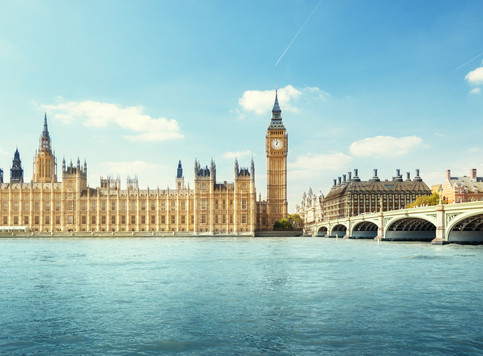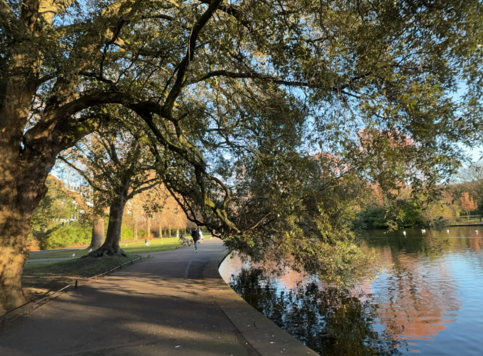Employers should assess how to stop the spreading of the virus in the workplace. Should the steps imposed by the employer negatively affect the employees, for example by closure of the canteen, the employer should assess whether this is a discretionary service or whether the employees are entitled to this service.
According to the Norwegian Working Environment Act, employees shall actively cooperate on the implementation of measures of the undertaking's systematic work on health, environment and safety to create a satisfactory and safe working environment. Employees shall use the prescribed protective equipment, exercise caution and otherwise contribute to prevention of injury to health. Generally, employees will therefore be required to follow/use the hygiene measures.
Any measures implemented by the government will need to be complied with. Tenants normally have operational responsibility over their exclusive premises and a landlord will normally have operational responsibility over the common areas. A concrete assessment of which measures are appropriate and necessary must be carried out so that, especially clearing, is carried out with the applicable recommendations that exist from time to time. These recommendations (can) change on a daily basis, so it is therefore important that both landlord and tenant continuously review how they will satisfy their operational responsibilities. The specific drafting in the lease should also be reviewed to check if any specific division of responsibilities between landlord and tenant has been agreed.
Many landlords and tenants are implementing their own specific measures relating to de-contamination/hygiene and these measures tend to differ between different asset clauses (for example, some cafes are only allowing a certain amount of people in the cafe at any time, etc).
The government have recommended that employers continue to encourage the use of a home office for its employees. Employers are being asked to ensure that employees are kept a metre apart if they are working at their workplace. The government has prohibited gatherings of over 20 people or more in private settings.
The government is planning on allowing the following businesses to re-open in accordance with the following timescales: hospitality businesses that don't sell food but who have table service can open on 1 June 2020 (businesses that sell food have already been allowed to open), organised swimming (including swimming schools) can open on 1 June 2020, amusement parks on 1 June 2020, events for 50-100 people can open on 15 June 2020, gyms can open on 1 June 2020 assuming they have suitable anti-infection measures in place, swimming halls and swimming parks can on open 15 June 2020 assuming they have suitable anti-infection measures in place.
A new act has been passed relating to temporary financial compensation measures for business with a significant fall in turnover. Applications have been open since 18 April 2020 for businesses whose closure has been enforced by the government. Applications have been open since 20 April 2020 for businesses whose closure has not been enforced by the government. In summary, this compensation scheme is open for applications from businesses who have suffered a minimum of a 30% fall in turnover as a result of the effects of COVID-19. If approved, the compensation scheme will pay out a grant which will help cover a businesses' "unavoidable fixed costs". "Unavoidable fixed costs" includes rent payable for let premises. Businesses whose closure has been enforced by the government will have up to 90% of their unavoidable costs covered by the government. Businesses whose closure has not been enforced and who have suffered a 30% fall in turnover will have up to 80% of their fixed costs covered by the government. The minimum amount that a business can apply for is NOK 5 000 and the maximum is NOK 80 million, but grants that exceed NOK 30 million will be reduced by a factor of 0.5. The scheme will apply to all businesses registered in Norway, which are taxable and which have been registered at the Companies Registrar before 1 March 2020. Any international branches applying will need to be operational and taxable in Norway to gain access to the scheme. Click here to learn more.
The local authorities are operating as usual and there are no measures that have been introduced, which prohibit forfeiture of leases and the eviction of tenants for non-payment of rent or otherwise. The eviction process may, however, take longer due to the effects of COVID-19.
The payment mechanisms of any rent suspensions that have been agreed between landlords and tenants will depend on what they have contractually or otherwise agreed.
As a main rule, rent should be entered as income when accrued and invoiced, irrespective of payment. If the lessor waives part of the rent with final effect, the reduced rent (net of waived amount) may be applied.
Relief may be available from the performance of real-estate related contractual obligations for both landlords and tenants.
Breach of contract
Relief may be available where a landlord or tenant breach their contractual obligations. The drafting of the specific lease should be reviewed to assess what kind of relief may be available. For example, a tenant may be entitled to a rent suspension where a landlord has to delay handover of the premises due to a delay in construction works that are being carried out at the premises due to the effects of COVID-19.
Force Majeure
Relief may also be available to either landlord or tenant via a claim for force majeure. The legal doctrine of force majeure is not defined in codified Norwegian law and exists as a general contractual principal. The general conditions for force majeure are:
- An event must exist which prevents fulfilment of a contractual party's obligations;
- The event must be beyond the control of the contracting party;
- The person affected by the incident could not have forced the event when entering into the contract; and
- The person affected by the incident cannot reasonably have avoided or overcome the obstacle and its consequences.
A party who wishes to make a claim for force majeure must notify the other party within a reasonable time frame - however, our recommendation is that any party wishing to invoke force majeure should make every effort to give notice to the other party of this immediately. It is often a requirement that such notice should also be given when the force majeure ceases. Failure to give notice may result in becoming liable for damages or losing the right to claim force majeure. Note the threshold for a force majeure claim to succeed is high.
Norwegian doctrine of a breach of expectations
Relief may also be available to both landlords or tenants via a claim made pursuant to the Norwegian doctrine of a breach of expectations. The core of the doctrine of breach of expectations is that the contract can be deemed invalid if conditions develop in an unforeseen manner so that key conditions/expectations for the contractual relationship have failed in such a way that fulfilment of the contract becomes unreasonably difficult or impossible to fulfil. Something extreme needs to occur in order for this doctrine to be satisfied, and it has, to some extent, lost its importance after section 36 of the Contract Act was passed, and the statutory basis for a revision of contract was established.
Revision of Contracts
Relief may also be available to both landlords or tenants via a claim pursuant to Section 36 of the Contract Act. Section 36 of the Contract Act states that a contract can be set aside (wholly or in part) or can be amended, in so far as it would be unreasonable or in conflict with good business practice to allow it to continue to apply. The same applies to unilateral binding dispositions. In applying this particular legislation, the decision will not only have to take into account the content of the agreement, the position of the parties and the conditions at the time the contract was entered into, but also any conditions and circumstances that occur at a later date. Note the threshold for this kind of claim to succeed is high.
Keep-open Obligations
Certain tenants will have relief from the performance of their keep-open obligations where their closure has been enforced by the government. It follows from section 5-1(4) of the Tenancy Act that certain tenants have a general keep-open obligation (unless expressly excluded in the lease): "The tenant of shop or catering premises is obliged to keep the business open and in normal daily operation except when temporary closure is necessary. Temporary closure will be deemed "necessary" for those businesses which are forced to close because of the government measures. These businesses include (list non-exhaustive) gyms, nightclubs, bars, swimming pools, waterparks.
In those instances where temporary closure of businesses isn't deemed "necessary" by the government because of the effects of COVID-19 then tenant keep-open obligations will remain unaffected. However, a lot of landlords are taking a commercial approach and waiving a breach of these obligations where tenants instead choose to close their businesses.
The government has introduced various new schemes for access to finance:
- businesses now have access to a state guarantee targeted at providing bank loans to small and medium-sized enterprises, with an initial limit of NOK 50 billion
- the government has reinstated the Government Bond Fund, with up to NOK 50 billion to be invested in bonds issued by Norwegian companies.
A new law has been passed relating to temporary financial compensation measures for business with a significant fall in turnover. Applications have been open since 18 April 2020 for businesses whose closure has been enforced by the government. Applications have been open since 20 April 2020 for businesses whose closure has not been enforced by the government. In summary, this compensation scheme is open for applications from businesses who have suffered a minimum of a 30% fall in turnover as a result of the effects of COVID-19. If approved, the compensation scheme will pay out a grant which will help cover a businesses' "unavoidable fixed costs" (examples of "unavoidable fixed costs" are costs connected to the letting of commercial premises, costs relating to external services but limited to accounting and audits, interest payments on debt to other financial institutions (provided that the interest cost is equivalent to the same interest expense with the lender on debt from banks, credit institutions and bonds), etc). Businesses whose closure has been enforced by the government will have up to 90% of their unavoidable costs covered. Businesses whose closure has not been enforced and who have suffered a 30% fall in turnover will have up to 80% of their fixed costs covered. The minimum amount that a business can apply for is NOK 5 000 and the maximum is NOK 80 million, but grants that exceed NOK 30 million will be reduced by a factor of 0.5. The scheme will apply to all businesses registered in Norway, which are taxable and which have been registered in the Companies Registrar before 1 March 2020. Any international branches applying will need to operational and taxable in Norway. Click here to learn more.
No but landlords have access to freeze their mortgage repayments and the government has introduced various schemes for access to finance, which include:
- businesses now have access to a state guarantee targeted at providing bank loans to small and medium sized enterprises, with an initial limit of NOK 50 billion
- the government has reinstated the Government Bond Fund, with up to NOK 50 billion to be invested in bonds issued by Norwegian companies.
Public services are necessary to issue temporary user consents/certificates of completion on new developments of buildings - all public services are still operational despite the effects of COVID-19.
There is no requirement in Norway that (i) a transfer of a property (whether by sale and purchase or by letting); or (ii) securing a charge on a property, needs to be registered with the Norwegian land registry in order for a transfer/charge to be legally completed. Note, however, that registration of a transfer/charge with the Norwegian Land Registry is necessary in order to guarantee that the disposee's/chargee's legal interest is given legal protection against all third party interests. The Norwegian Land Registry remains open and land registration is still possible.
Execution of contracts can be done using electronic signatures.
Public services are necessary to issue temporary user consents/certificates of completion on new developments of buildings - all public services are still operational despite the effects of COVID-19.
There is no requirement in Norway that (i) a transfer of a property (whether by sale and purchase or by letting); or (ii) securing a charge on a property, needs to be registered with the Norwegian land registry in order for a transfer/charge to be legally completed. Note, however, that registration of a transfer/charge with the Norwegian Land Registry is necessary in order to guarantee that the disposee's/chargee's legal interest is given legal protection against all third party interests. The Norwegian Land Registry remains open and land registration is still possible.
Execution of contracts can be done using electronic signatures.
Execution of contracts can be carried out using electronic signatures - electronic signatures can be used to sign real estate transaction documents (for example, sale and purchase agreements, leases, etc) that are required to consummate real estate operations. Deeds and mortgage bonds can also be signed electronically.
The Land Registry remains open and are still processing land registry applications.
Physical inspections of properties can still be carried out but this should be done in a way which complies with the government's social distancing rules (for example, everyone should be kept 1 metre apart).
Building sites have not been closed down by the Government due to the COVID-19 pandemic, nor have the Government issued any rules or guidance regarding continued operations at constructions sites.
However, The Federation of Norwegian Construction Industries (BNL), which is a business and employer policy organization for companies in the construction industry, has provided recommendations regarding infection prevention and control on continued. The recommendations are based on the COVID-19 Regulations, and subject to change depending on what is considered necessary to limit the spread of the SARS CoV-2 virus.
The main sources of law that govern and regulate contracts for the design or carrying out of building works are the different standard documents agreed and developed by contractors and builders in collaboration. According to these standard documents, the parties may demand an extension of time limits if the performance of their obligations is prevented by circumstances outside their control (force majeure), cf. for example NS 8405 clause 24.3 and NS 8407 clause 33.3.
No, but there may be instances where local municipalities/planning authorities are granting extensions on a case by case basis.
Depending on the type of business, it could be pertinent to inform visitors/others of the type of conduct and precautions you expect on your locations and business properties, i.e. use of antibacterial soaps. Generally, we would not specifically advice business to require disclaimers before allowing visits to the business site, also as – depending on the disclaimer – it is not necessarily valid under Norwegian law.












